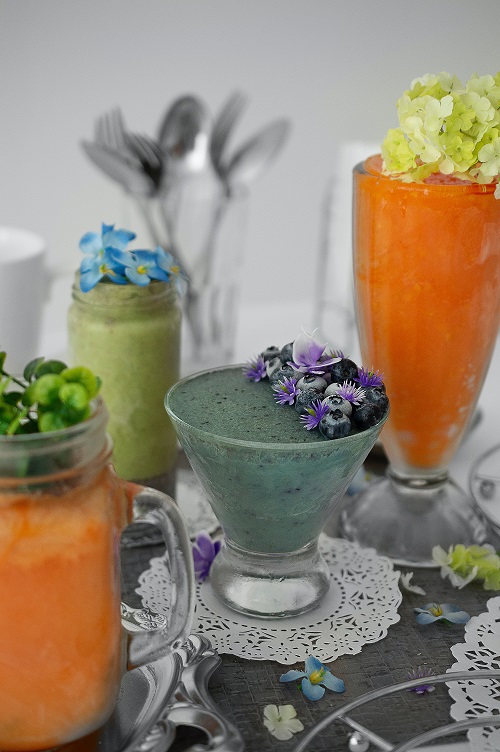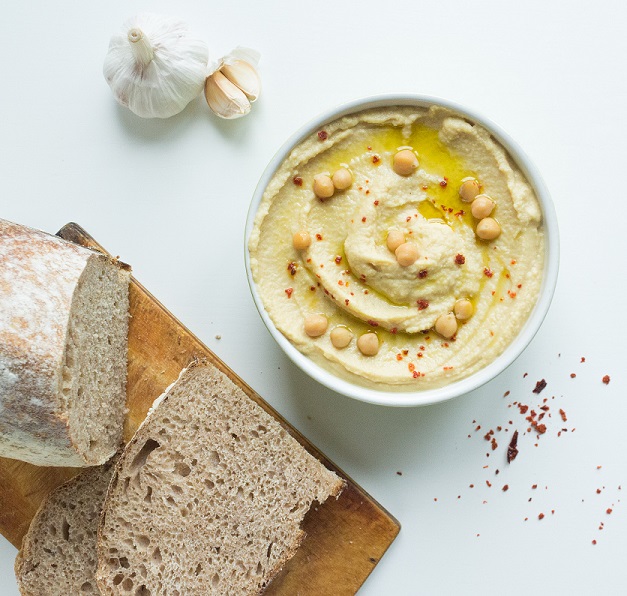Food Standards Australia and New Zealand (FSANZ) recently updated its advice on pregnancy and food safety and have issued new recommendations for foods and drinks to avoid while pregnant.
 The new advice suggests that all pregnant women should avoid fresh unpasteurised juices that are pressed or blended and presented ready-to-drink, as well as hummus or other dips containing tahini (a paste made from sesame seeds).
The new advice suggests that all pregnant women should avoid fresh unpasteurised juices that are pressed or blended and presented ready-to-drink, as well as hummus or other dips containing tahini (a paste made from sesame seeds).
The newly added food items have a higher risk of containing Listeria or Salmonella, both of which have been linked to foodborne illness.
There have been a number of foodborne illness outbreaks of Salmonellosis associated with tahini or foods containing tahini.
The most common symptoms of Salmonellosis include diarrhoea, stomach cramps and fever. Illness normally lasts between 1-7 days.
Symptoms of Listeriosis can be mild, such as a fever, headache, diarrhoea and nausea, but Listeria can also trigger meningitis (inflammation around the brain) or encephalitis (infection of the brain) which can cause headaches, stiff necks, and seizures. These symptoms usually start between 3 to 70 days after eating food contaminated with the bacteria.
Food poisoning during pregnancy generally has more severe outcomes than for the average healthy adult due to the mother’s weakened immune system. These include miscarriage, stillbirth or infection of the newborn baby.
Protecting yourself from foodborne illness by making informed choices when you are pregnant is extremely important.
High-risk foods to avoid include:
- soft and semi soft cheeses (e.g. brie, camembert and ricotta)
- cold cooked chicken (as used in sandwiches and salads)
- cold processed deli meats (e.g. ham, salami and pre-cut cold meats)

- prepared cold salads (from supermarkets, buffets and salad bars etc.)
- raw and smoked seafood (e.g. oysters, sashimi, salmon and sushi)
- soft serve ice cream and thick shakes
- pate
- hummus or other dips containing tahini
- unpasteurised dairy products, including goats milk
- unpasteurised juices that are cold pressed, blended or ready-to-drink
- raw eggs and food containing raw eggs (including mayonnaise, hollandaise sauce and desserts such as mousses especially when homemade)
- raw or undercooked meats
- raw or lightly cooked sprouts including alfalfa, broccoli sprouts, onion sprouts, sunflower sprouts, clover sprouts, radish sprouts, snow pea sprouts and soybean sprouts.
More information about pregnancy and food safety
More information about pathogens that cause foodborne illness
Infographic: 6 Facts About Listeria
Infographic: 8 Facts About Salmonella
Infographic: 8 Facts About Campylobacter
Infographic: 10 Facts About E. coli
Infographic: 9 Facts About Staphylococcal aureus
Note: images used in this article have been sourced from Unsplash
